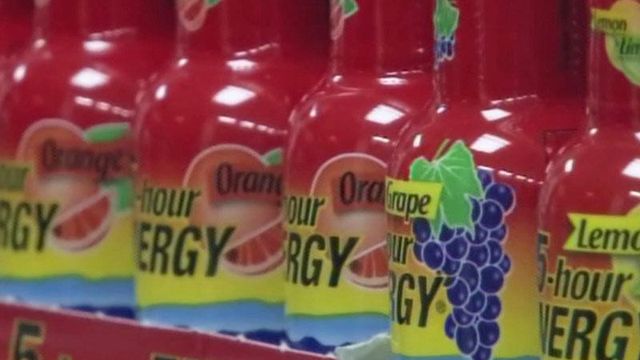Energy shots provide boost, but no more than coffee
It's a tiny 2-ounce bottle with a very big kick. Sales are soaring for energy shots such as 5-Hour Energy, the most popular of a slew of products that promise an energy boost.
Posted — UpdatedIt's a tiny 2-ounce bottle with a very big kick. Sales are soaring for energy shots such as 5-Hour Energy, the most popular of a slew of products that promise an energy boost.
The ads for 5-Hour Energy target busy parents and working adults, as well as young people through YouTube and Facebook. The brightly colored bottles stand out at checkout counters in grocery stores and gas stations across the country. The company says customers drink more than 7 million energy shots a week.
"The company showed us a summary of a study it conducted that supports its claims of increasing attention and alertness. But the study hasn't been published, and the company wouldn't let us keep a copy," said Jamie Hirsh of Consumer Reports.
"While caffeine is a known stimulant, we found little, if any, published scientific research showing that the other ingredients in the 'energy blend' provide such a boost," Hirsh said.
But a recent analysis by the independent website Consumerlab.com found that one shot contains 201 milligrams of caffeine, about 15 percent more than an 8-ounce cup of Starbucks' bold coffee.
"The bottom line is 5-Hour Energy will probably chase away grogginess. But so will a cup of coffee, and it costs a lot less," Hirsh said.
The label cautions people: "do not exceed two bottles daily, consumed several hours apart." This may be because energy drinks have been linked to reports of nausea, abnormal heart rhythms and emergency room visits.
Copyright 2024 by Capitol Broadcasting Company. All rights reserved. This material may not be published, broadcast, rewritten or redistributed.





